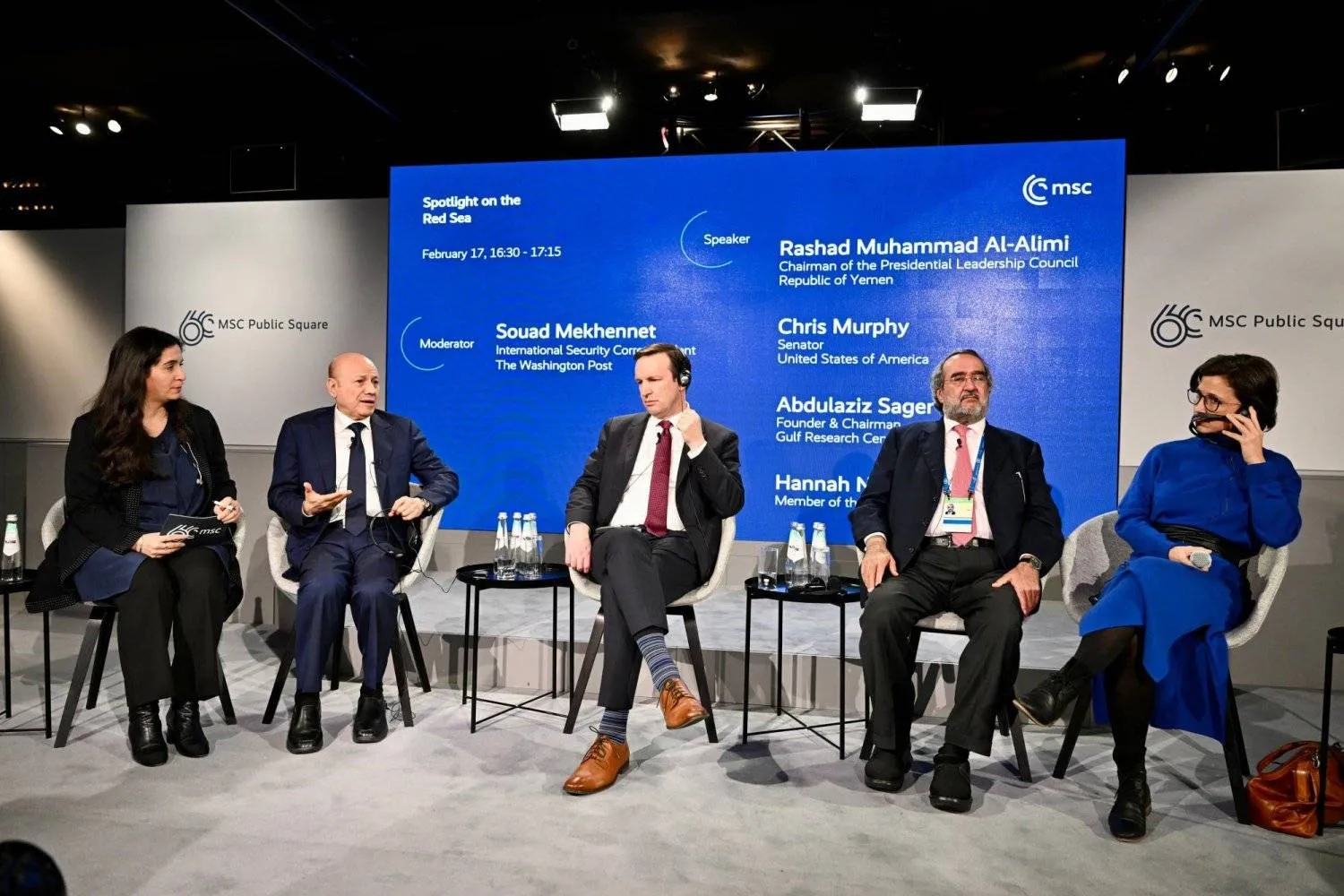Chairman of the Yemeni Presidential Leadership Council Dr. Rashad al-Alimi used his platform at the Munich Security Conference to pick apart the Iran-backed Houthi militias’ narrative over their attacks in the Red Sea.
The Houthis have claimed that the attacks against international shipping routes are aimed at supporting the Palestinian people in Gaza amid the Israeli war against the enclave. They have said that they were targeting ships affiliated with or headed to Israel to champion the Palestinian people.
Speaking at a panel discussion on Yemen and the Red Sea tensions, Alimi said the terrorist Houthis’ continued control over coastal provinces will allow them to keep up their threats against the region and world, including international shipping lanes.
“If we want to end this piracy, then we must deal with the source of this threat. This lies in ending the Houthi coup and restoring state institutions, while simultaneously applying maximum pressure on the Iranian regime,” he urged.
On January 17, the US State Department officially designated the Houthi militias as a global terrorist organization. This freezes any assets they have in the US and cuts off their funding sources.
The decision went into effect last week.
Alimi warned that the Houthis would continue to pose a threat, urging the international community to boost the capabilities of the Yemeni government and countries overlooking the Red Sea so that they can become effective partners in confronting the challenges and helping regional and world stability.
Moreover, he stressed that the world finally became alerted to the real catastrophe when the Houthis started to threaten global trade routes to Europe, saying the militias have now become a global problem.
Furthermore, he said the Houthi threats to marine navigation will persist even after the end of the Gaza war.
“The Red Sea will continue to be a source of tension ready to explode at any political turn as long as the Houthis control coastal regions,” he warned.
The only viable long-term solution in Yemen lies in supporting the state and helping its legitimate authorities build institutions and dry up the sources that are financing and arming the Houthis, Alimi explained.
He reiterated the Yemeni leadership’s rejection of the terrorist Houthi behavior in the Red Sea. He said the Yemeni people and government stand in moral support with the Palestinian people and are also aware of how the plight in Gaza has been opportunistically exploited by the Houthis to achieve a political and regional agenda.
Since November 19, the Houthis have carried out around 47 attacks against vessels in the Red Sea and Gulf of Aden, resulting in damage to at least eight ships. They have also seized the Galaxy Leader and continue to hold it and its crew.
The West has retaliated with the US carrying out a series of strikes against the militias. The Houthis have acknowledged the death of 32 of its members.
Alimi urged the international community to support the capabilities of the Yemeni government so that it can impose state sovereignty at sea. He also said that as long as the sea attacks are being launched from land, then tackling the threat should start from land as well.
The PLC leader held a series of meetings with European officials in Munich, including NATO Assistant Secretary General for Political Affairs and Security Policy Boris Ruge and German Minister of State Tobias Lindner.









